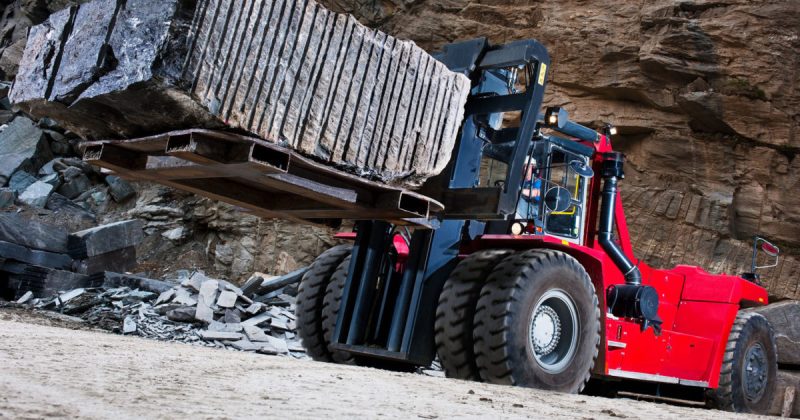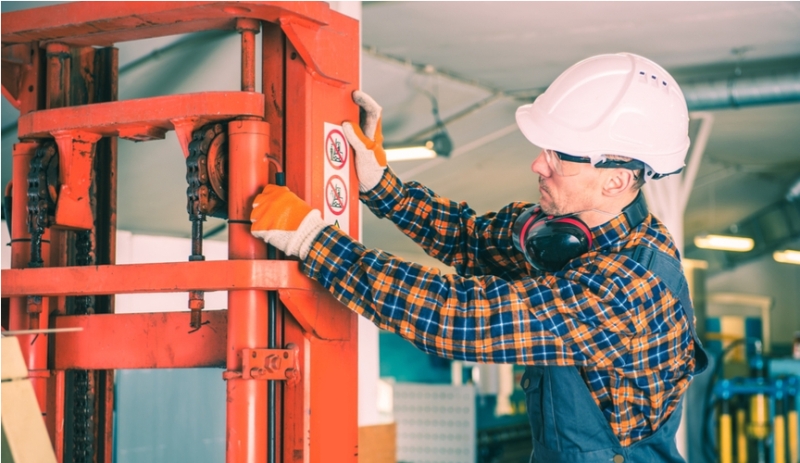Your forklift becomes an essential tool in the warehouse and other sites. That’s why when the forklift breaks down, it can bring productivity to a grinding halt. You want the forklift in as good of a condition as possible. Upkeep matters because you don’t want to unnecessarily spend more on repairs than needed.
Tip #1: Stay Proactive

Catch problems before they have the opportunity to manifest. You have to pay close attention to your forklift, and if you hear strange noises, lights or gauges or off readings, you should have it inspected as soon as possible to reduce the risk of further harm to your forklift. The sooner that you catch the problem, the less it will cost you.
Getting ahead of the problem will keep you from having to pay more money. You don’t want to have to spend a lot of money on the bigger repairs.
Tip #2: Monitor the Tires Closely
Along with staying proactive with the rest of the machine, you also have to monitor the tires. You want to see that the tires have enough air, and if you have rubber tires on the forklift, you want to make sure that they don’t get gashes or damages to them. This matters. That’s because as the machine moves, you want to make sure that your forklift moves in a balanced way. A damaged tire can cost you more because of how it can damage your goods. Through proactive maintenance, you can avoid these problems.
Good maintenance will also keep your machine in good condition so that you don’t need forklift repairs & service. That will cost you more. One of the things to prevent more repairs comes from simply staying aware of your vehicle, and if something doesn’t sound right, change it.
Tip #3: Inspect Your Forklift Daily

Not only does this make for a good practice on your part, but OSHA has also made it a requirement. You can catch some of the worst problems like faltering brakes and leaky hoses. Through these checks, you can also ensure that the forklift remains safe to use. One of the dangers of using the forklift comes from the danger of using it. People have gotten badly injured or died from using them. When you ensure safety in the workplace, you don’t have to worry as much about someone getting injured and you having to pay workers’ compensation.
One of the best ways that you can implement these checks will come from using a checklist like the one that OSHA has given. Some of the things that they recommend checking include:
- Hoses
- Fluid levels
- Tire pressure
- Brake performance
- Seat belt performance
- Forks and overhead guards
Tip #4: Clean Your Forklift Weekly
Believe it or not, cleanliness will do more for your forklift than improve its appearance. You prevent a buildup of some of the combustible materials like lint on the machine. As the lint blocks the radiator, you can imagine the problems that can arise. It improves the safety and makes your forklift operate more effectively. Because of this, you want to keep your forklift getting weekly cleanings to improve its standing. The dirt and debris can also start to wear on the internal mechanisms.
Tip #5: Deal with Issues as Soon as They Occur
You should schedule regular maintenance and checks to ensure everything remains in proper working order. If you see the brake growing increasingly soft, a tine could break during use. That’s why you want to deal with this issue as soon as it arises. This prevents dangerous accidents and costly repairs.
As you can see, a lot of forklift repair comes down to remaining proactive. Maintenance becomes essential to keeping your forklift in working order. Through daily inspections you lower the risk that someone will have a dangerous accident on one or that you will have to repair it. In addition, maintenance also matters because of how it can lengthen the lifetime of your machine. You want your investment to last for as long as possible so that you can get the maximum return on the amount of work that it does.




